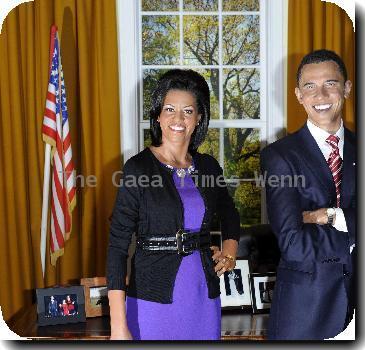Coast Guard calls off search for 11 workers missing since oil rig blast off La. coast
By APFriday, April 23, 2010
Search ends for 11 missing oil rig workers off La.
NEW ORLEANS — Coast Guard officials on Friday suspended the three-day search for 11 workers missing since an explosion rocked an offshore oil rig, saying they believe the men never made it off the platform that erupted into a giant fireball.
Coast Guard Capt. Peter Troedsson said he spoke with all the workers’ families about the decision to suspend the search before announcing it to the media.
“I’m a father and husband, and I have done this a few times before. It’s never easy. Your heart goes out to these people,” Troedsson said.
The Coast Guard says it will resume the search if any ships in the area see anything, but the workers’ chances of survival had seemed slim well before Friday afternoon’s announcement. “The time of reasonable expectation of survivability has passed,” Rear Adm. Mary Landry said.
What caused Tuesday’s massive blast off the Louisiana coast is unknown. As the search was ending, oil company crews were trying to clean up the environmental mess created by the Deepwater Horizon, which finally sank Thursday. The other 115 crew members made it off the platform, though four were critically hurt.
Federal regulators did not need this week’s explosion aboard the state-of-the-art rig to know the offshore drilling industry needed new safety rules: Dozens of deaths and hundreds of injuries over the last several years had already convinced them that changes were needed.
The U.S. Minerals and Management Service is developing regulations aimed at preventing human error, which it identified as a factor in many of the more than 1,400 offshore oil drilling accidents between 2001 and 2007.
The Deepwater Horizon was the site of a 2005 fire found to have been caused by human error. An MMS investigation determined that a crane operator on the rig had become distracted while refueling the crane, allowing diesel fuel to overflow. Records show the fire was quickly contained, but caused $60,000 in damage to the crane.
An MMS review published last year found 41 deaths and 302 injuries out of 1,443 accidents from 2001 to 2007, the majority of caused by human error and operational and maintenance problems.
As a result of the findings, the MMS is developing new rules that would require rig operators to develop programs focused on preventing human error, an area that hadn’t received as much attention in the past. The agency, which has yet to implement the new rules, also proposed audits once every three years.
Environmentalists say that while new technology touted by oil industry executives continues to improve, people still have to oversee those devices and human error remains a widespread problem.
“You can’t outlaw human error,” Richard Charter, a senior policy adviser with Defenders of Wildlife, who has been involved in drilling issues for 30 years, said of Tuesday’s explosion. “It’s one of the sidebar issues now emerging for the Horizon incident — these are common incidents and this was just a bigger one.”
Opponents of President Barack Obama’s plan for more offshore drilling, particularly off the East Coast, say the explosion on the Deepwater Horizon should be taken as a warning to slow the fervor to “drill, baby drill.”
“I would hope it would serve as another wake-up call on this issue that there is no such thing as safe oil drilling,” said Sara Wan, a member of the California Coastal Commission, a state regulatory agency. “Once that oil starts leaking in the ocean, that damage is irreversible. You just look at what happened with Exxon-Valdez — they’re still feeling the effects of it. There’s no real way to clean it up.”
Obama showed no sign of budging Friday. Spokesman Robert Gibbs said the president still believes increasing domestic oil production can be done safely, securely and without harming the environment.
“I don’t honestly think it opens up a whole new series of questions, because, you know, in all honesty I doubt this is the first accident that has happened and I doubt it will be the last,” Gibbs said.
On March 31, Obama called for new offshore drilling in the Atlantic Ocean from Delaware to central Florida, plus the northern waters of Alaska. He also wants Congress to lift a drilling ban in the oil-rich eastern Gulf of Mexico, 125 miles from Florida beaches.
Interior Secretary Ken Salazar said Friday that the Obama administration’s drilling plan would assess potential risks and benefits of any offshore site before drilling is pursued. No new lease sales are planned before at least 2012.
An undetermined amount of oil has spilled from the Deepwater Horizon, which is owned by Transocean Ltd. The sheen appeared to cover an area about two miles wide and eight miles long Friday afternoon, said Petty Officer Ashley Butler of the Coast Guard.
BP PLC, which leased the rig and is taking the lead in the cleanup, said it has activated an extensive oil spill response, including using remotely operated vehicles to assess the well and 32 vessels to mop up the spill.
Rear Adm. Landry said no oil appeared to be leaking from a well head at the ocean floor, nor was any leaking at the water’s surface. But she said crews were closely monitoring the rig for any more crude that might spill out.
About half a dozen boats were using booms to trap the thin sheen, which extended about seven miles north of the rig site. There was no sign of wildlife being affected; the Louisiana coast is about 50 miles away.
Strong winds were blowing generally from the south as a cold front approached from Texas. The passage of the front late Friday or Saturday was expected to shift winds to the north, which could push the sheen away from the coast. Crews were trying to contain what spilled and prevent any threat to the coast’s fragile coastal wetlands — nurseries for fish and shrimp and habitat for birds.
The Marine Spill Response Corp., an energy industry cleanup consortium, brought seven skimmer boats to suck oily water from the surface, four planes that can scatter chemicals to disperse oil, and 500,000 feet — 94.6 miles — of containment boom, a floating barrier with a skirt that drapes down under the water and corrals the oil.
U.S. Sen. Bill Nelson called for a congressional investigation of safety practices at offshore oil rigs. Nelson, a Florida Democrat who has led opposition to offshore drilling, said he asked the U.S. Interior Department to investigate and provide a comprehensive report on all U.S. drilling accidents over at least the last decade.
“The tragedy off the coast of Louisiana shows we need to be asking a lot more tough questions of big oil,” Nelson said. “I think we need to look back over 10 years or so to see if the record denies the industry’s claims about safety and technology.”
Associated Press Writer Noaki Schwartz reported from Los Angeles. Associated Press writers Mike Kunzelman, Cain Burdeau and Alan Sayre in Louisiana contributed to this report.
Tags: Accidents, Barack Obama, Coastlines And Beaches, Deepwater horizon, Energy, Energy And The Environment, Environmental Concerns, Explosions, Florida, Government Regulations, Industry Regulation, Louisiana, New Orleans, North America, Oceans, Personnel, Port Fourchon, Search And Rescue Efforts, United States, Wetlands, Wildlife

